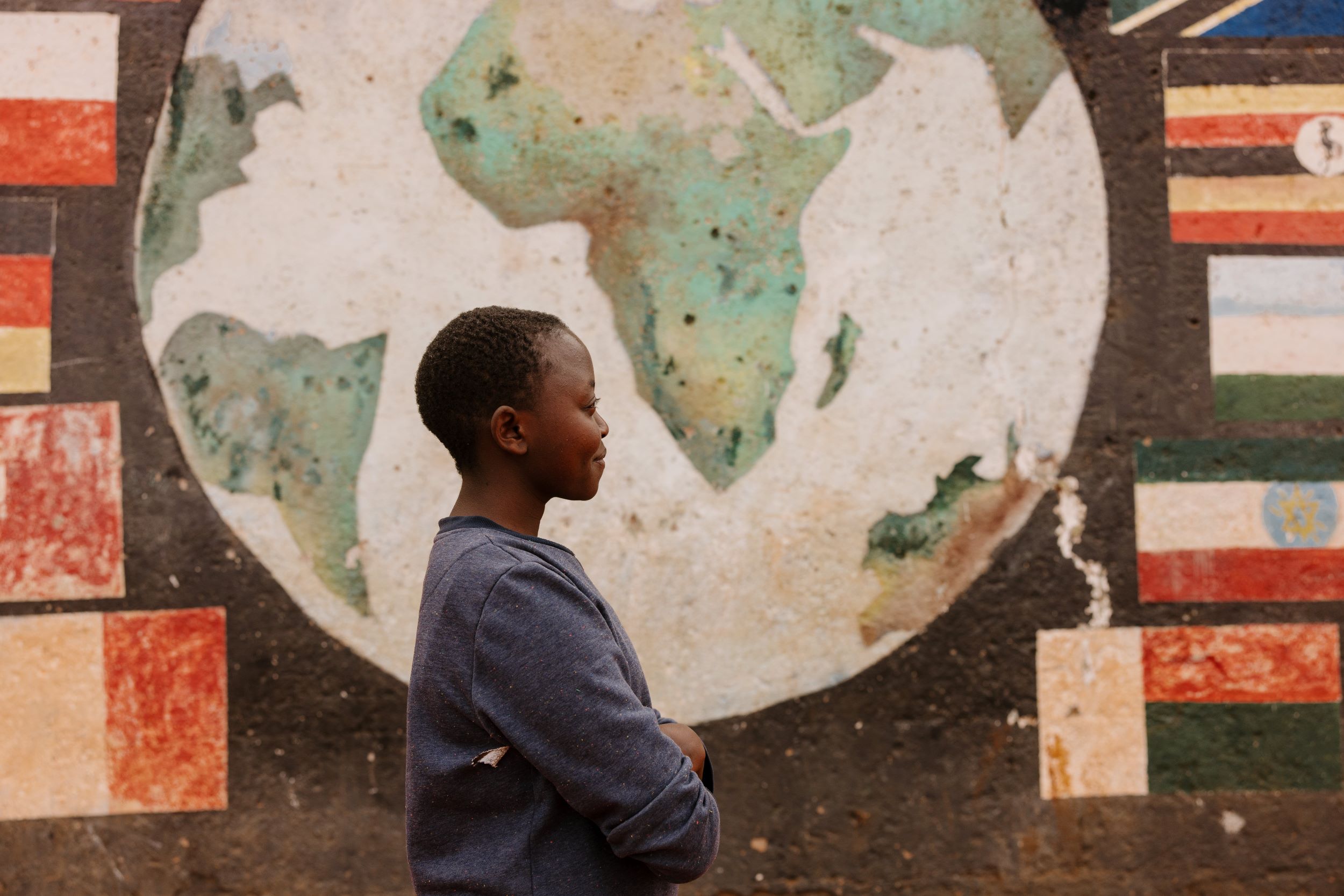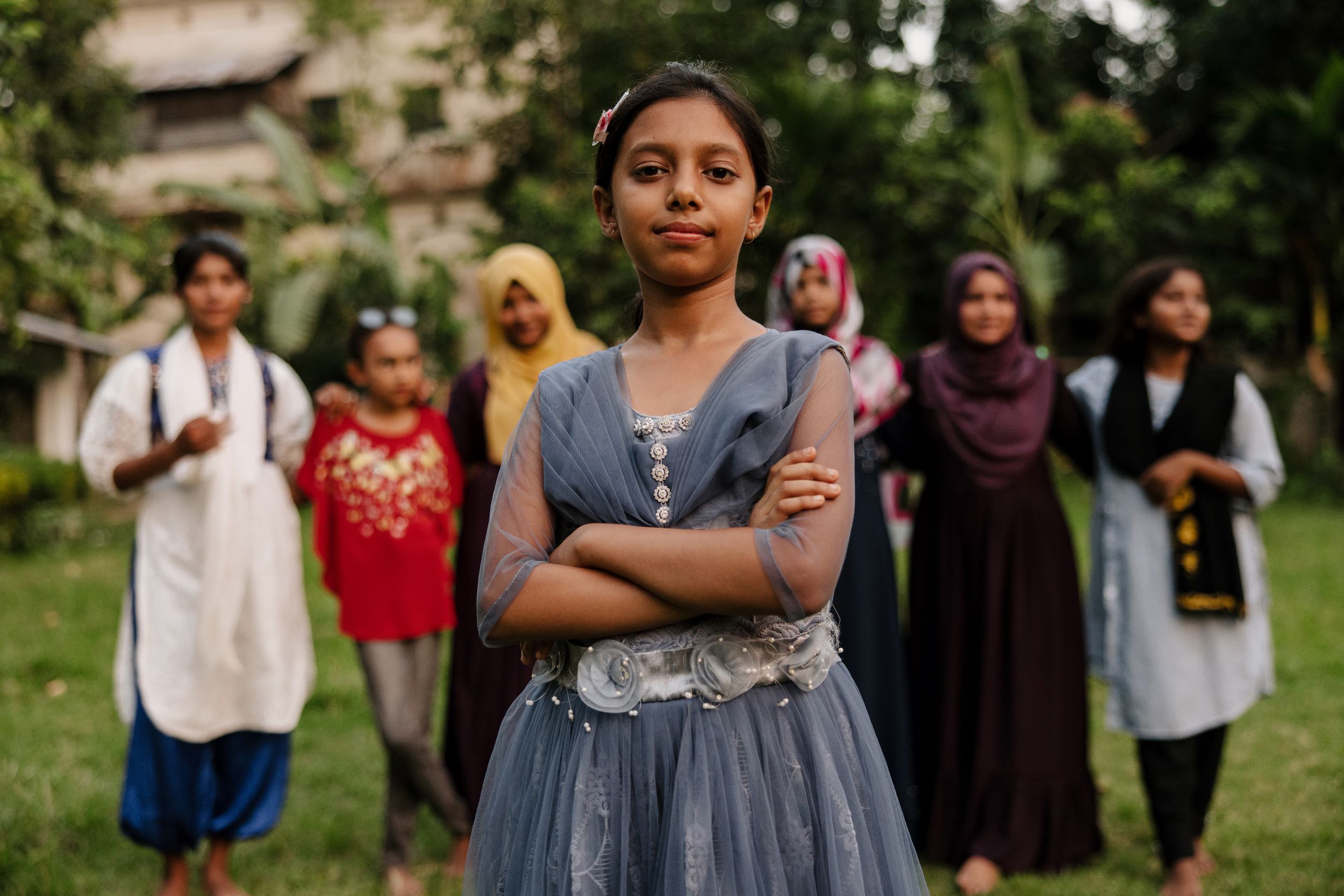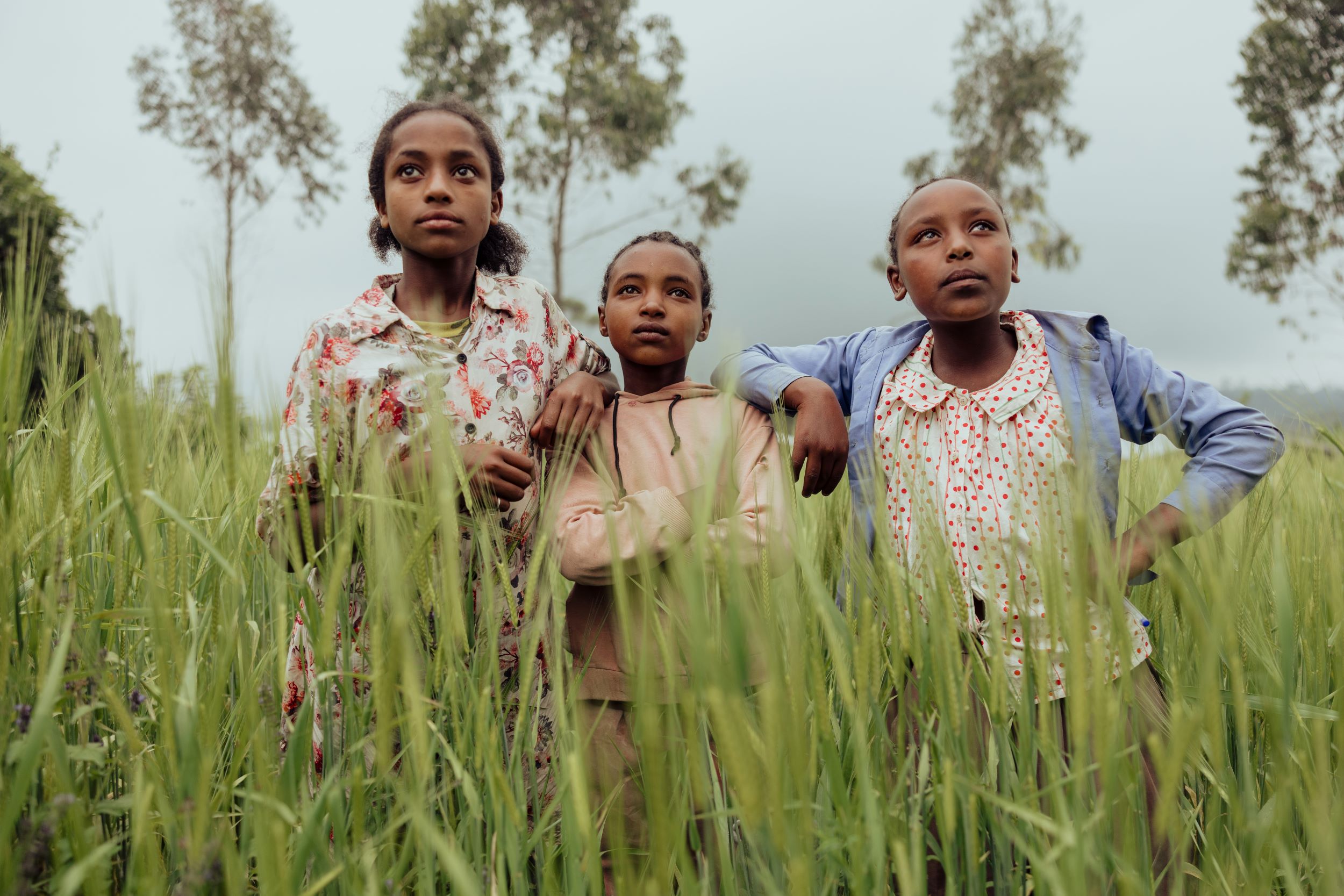
What are the causes and effects of child marriage?
Learn about early marriage and how Child Sponsorship helps girls fight back.
What is child marriage?
Child marriage is any formal marriage or informal union between two people where one or both are under the age of 18. It encompasses forced marriage, defined as a marriage at any age that occurs without the free and full consent of both individuals.
A marriage involving a child is a form of violence and is a serious violation of their rights. Ending child marriage is part of the UN’s Sustainable Development Goals, falling under goal number 5: gender equality.
While boys are impacted by underage marriage, the majority of those entering marriage as children are girls. According to the United Nations, 650 million women who are alive today became brides before they turned 18, while 12 million girls are added to this number each year.
Countries with the highest prevalence of underage marriage* include Niger, Central African Republic, Chad, Mali and Mozambique .
*Based on % of 20-24-year-olds who married before the age of 18. Statistics from Girls not Brides
READ MORE: Child marriage FAQs
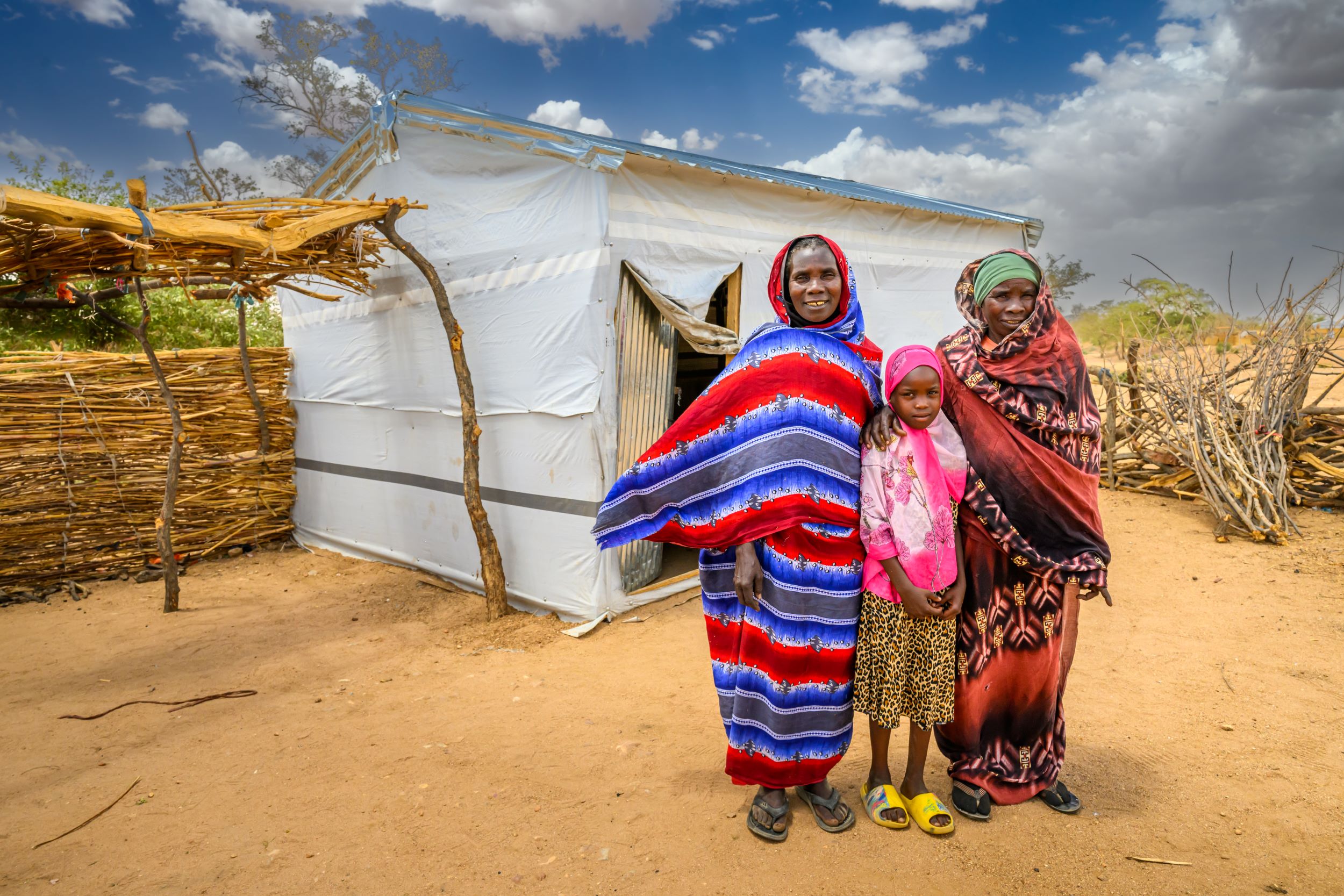
Why does early marriage happen?
Child and forced marriage is a complex issue caused by multiple interconnecting factors within the individual child’s family, community and wider society. The causes of childhood marriage include:
1. Gender inequality
Gender inequality is deeply rooted in many societies. Women and girls are largely seen as inferior – born to look after the home, give birth to children and care for them. In these places, patriarchal systems often prevail, where decisions are made by men and boys and the value of women or girls is based on their purity. Men dictate how women and girls behave and dress, who they can see, where they can go, and who they marry.
2. Poverty and food insecurity
Families who are living in extreme poverty and who experience food insecurity often see child marriage as a way to reduce family costs and/or gain financial security. Sometimes a child is married off for a dowry, to pay debts or settle disputes.
3. Misguided beliefs about safety/violence
Some parents believe that by marrying off their daughter they can protect her from more generalised violence including gender-based violence, rape and other forms of sexual violence, which are common in areas affected by conflict and emergency.
4. Conflict, disaster and climate change
Conflict, disaster and the impact of climate change all exacerbate the risks of girls and boys being given to early marriage. The top 10 countries with the highest rate of child marriage are considered fragile or extremely fragile. Families in these contexts consider child marriage as an option to reduce the economic burden on the household.
Displacement due to conflict or disaster erodes the social networks and protective mechanisms of children, making girls more vulnerable to becoming child brides. Girls who have been separated from their families may sometimes marry older men who promise to reunite them with their loved ones. Child marriage can also be a ploy in these contexts to hide trafficking and sexual exploitation.
5. Ongoing impact of the pandemic
The Covid pandemic exacerbated existing vulnerabilities and acted as a multiplier of child protection risks globally. World Vision estimates that, as a result of Covid, over the next 10 years we will be recording an additional 13 million child marriages, adding to the 150 million already foreseen to occur in that timeframe.
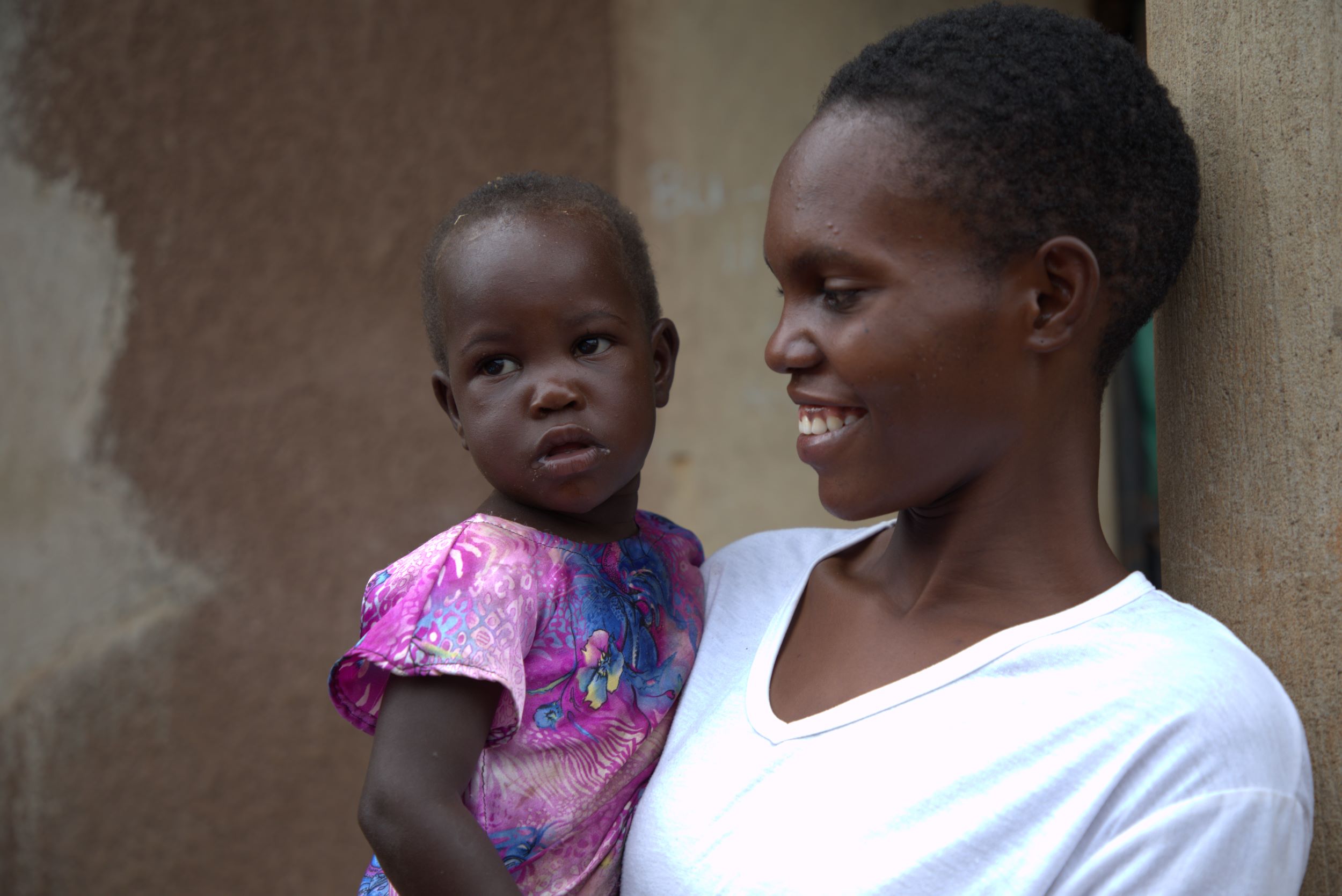
What are the effects of childhood marriage?
Early marriage deeply – and often irrevocably – impacts the lives of children in numerous ways. It can deprive girls and boys of opportunities for life.
When a child marries before they are physically and mentally ready, there can be serious consequences to their health and wellbeing. In addition, their families, communities, wider society and future generations all suffer.
The impacts of child marriage include:
1. Domestic violence
Girls in early marriage are often subjected to domestic violence, not only by their intimate partner but also their in-laws.
2. Teen pregnancy
When girls who get married are so young, their bodies aren't always ready for pregnancy and labour. This often leads to health complications for both the mother and baby, and with little access to healthcare in many remote communities, it can even be fatal.
3. Poor health
Girls who marry early fare worse in their health and economic outcomes compared to their unmarried counterparts. They are undernourished with less access to economic and health services – outcomes that can be passed on to their future children.
4. Reduced education and employment opportunities
Girls who marry before they turn 18 often drop out of school to look after the home. The likelihood of returning to school shrinks further when they become pregnant.
The reality of child marriage is more children losing the chance to pursue higher education, reducing opportunities for employment, thus, less capacity to earn a decent income.
5. Poverty
Reduced income can further result in a lower standard of living for families, perpetuating intergenerational poverty. Higher numbers of children and families living in poverty increase the social welfare burden on governments. In low-income countries, this can often be a low priority.
6. Poor mental health
Evidence shows that when children are married before the age of 18, their lifetime risk of mental illness increases.
In 2018, the first ever study to estimate the economic burden of child marriage found that child marriage will cost the world $4 trillion by 2030.
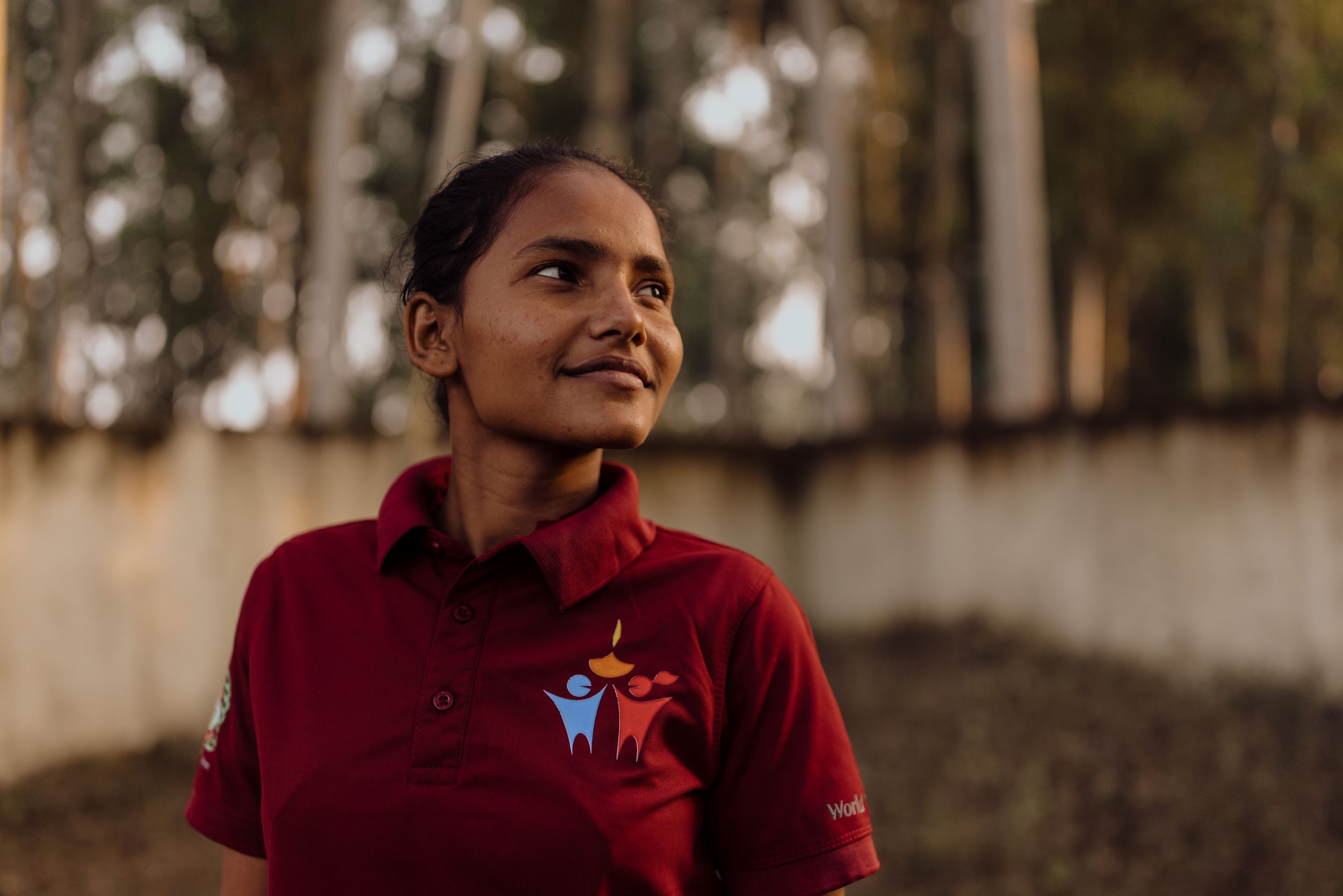
How is World Vision protecting girls?
World Vision runs long-term Child Sponsorship programmes as well as responding to emergencies and disasters. We partner with communities to tackle issues like nutrition, healthcare, water and sanitation, education, livelihoods and – crucially – child protection.
Over time, this partnership results in a thriving community where girls and boys are healthy, stay in school, know their rights, and can stay safe.
Read Neha’s story to find out how this plays out in reality.
Neha’s determination
Education saved Neha in Nepal from child marriage. But it didn’t end there.
“I am 18 years’ old and I have stopped three child marriages. I was almost a victim of child marriage but I was saved,” says Neha.
Not only has Neha stopped three child marriages from taking place – she has also prevented countless more from being arranged.
Behind this determination to fight for girls’ rights is a World Vision Child Sponsorship programme providing children with the resources to go to school, skills to be resilient and fight for their rights and mobilising their communities to take action – often the starting point of a shifting mindset.
It started with her own child marriage
It’s hard to believe that, just four years ago, Neha was in the same position as the girls she helps today.
At 14, Neha’s parents agreed to marry her off to, in Neha’s own words, a “rich man from India, who owned a mobile phone shop”. The man was much older and had been married five days earlier, but his wife had already run away. Because of this, there was no dowry to pay, so her parents were keen for the marriage to go ahead.
But Neha was not, and she did all she could to stop the marriage taking place. She pled with her parents, but they wouldn’t listen. She then attempted – and thankfully failed – to throw herself into hot oil as a demonstration of her unhappiness. In a last-ditch effort, Neha escaped to her sister’s house, believing she’d never see her parents again.
A perfectly timed intervention
Around this time, Neha’s family learned about World Vision’s intervention work, focusing on the importance of education. Her parents received training on the benefits of education and were encouraged to keep their five daughters in school rather than marrying them off. A year later, when another opportunity to get married arose, Neha’s parents supported her decision to refuse.
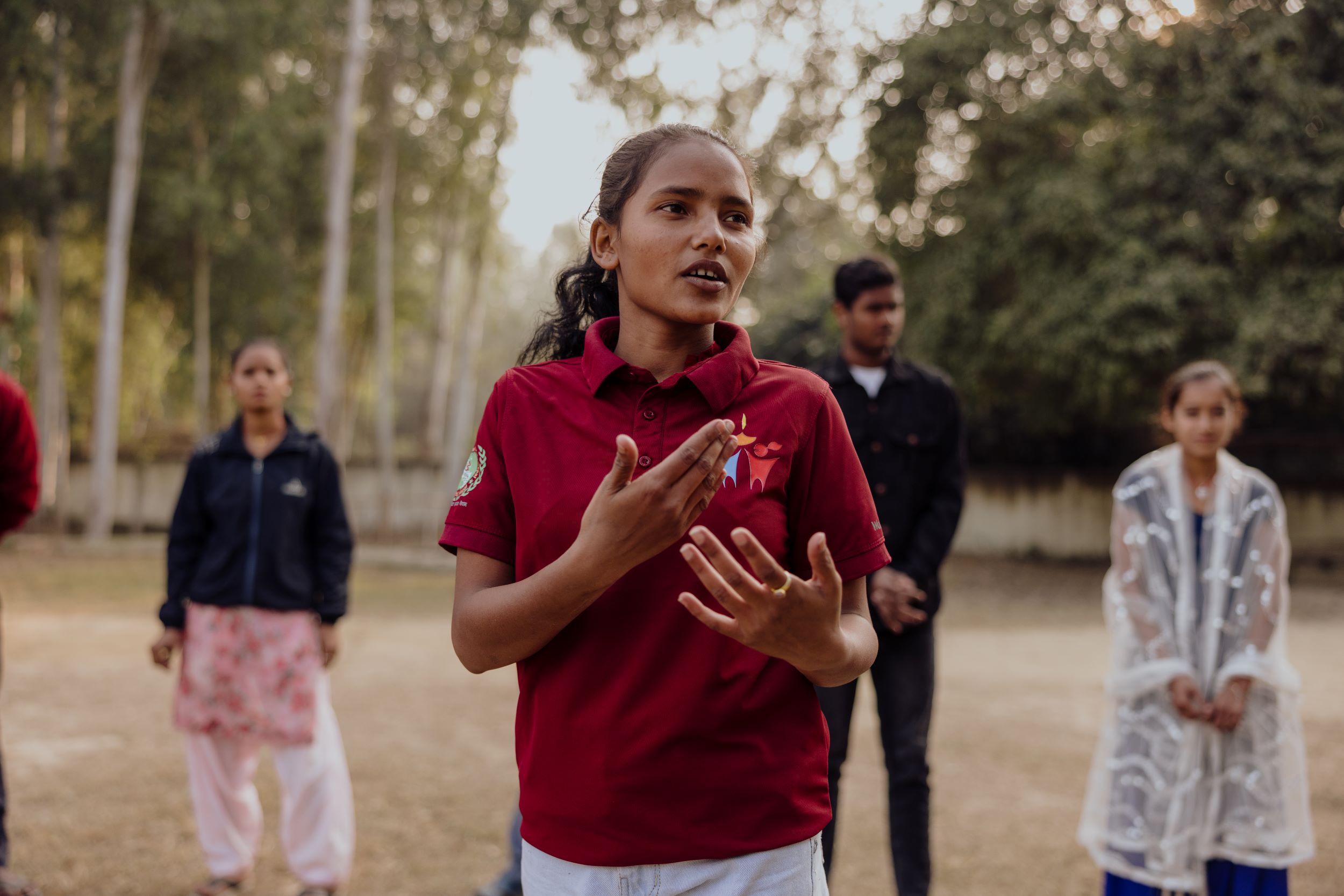
Leading change in her community
Today, Neha is finishing her studies while leading the change to end child marriage in her community.
Each day after school she facilitates training sessions with young girls, who know they have a safe place to go. With support from World Vision, Neha has a network of activists, trained to resist and detect child marriage and report incidences to the authorities.
“I didn’t even think in my dreams that I would become like this,” she says. “Others say they want to be like me. They see me as good and want to be like me.”
Fight for her rights
Neha is proof that amazing things can happen when children feel empowered and stay in school.
Child marriage robs children of their childhood, their potential and their independence.
But Child Sponsorship gives them a voice, a purpose and a hope-filled future.
You can fight for a girl's rights today by sponsoring a girl.

